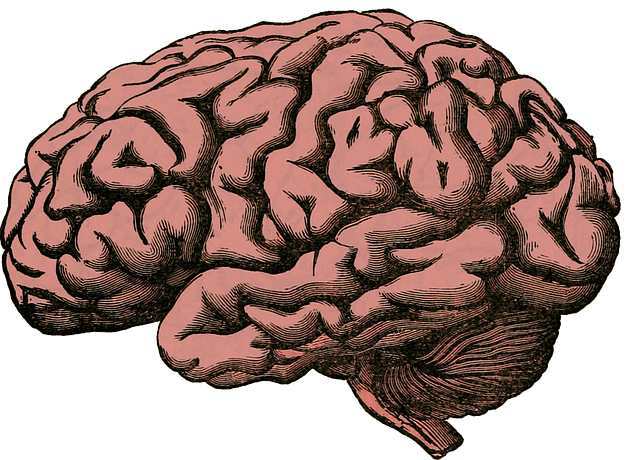Arvada Pain Management Therapy offers a unique, holistic approach to mental wellness, addressing the deep connection between physical and emotional health. Their coaching programs cater to individual needs, using evidence-based practices like cognitive-behavioral therapy and self-awareness exercises to help clients manage chronic pain and related mental health issues. Through tailored interventions, regular check-ins, and community outreach, they foster resilience and improved well-being. The program's adaptive approach considers cultural backgrounds and personal beliefs, aiming to reduce medication reliance, improve quality of life, and prevent burnout among healthcare providers.
“Uncover the transformative power of mental wellness coaching within the context of Arvada Pain Management Therapy. This comprehensive guide explores how such programs, rooted in effective strategies, can significantly enhance patient care. We delve into the key components and design principles essential for successful coaching, focusing on Arvada’s unique approach. By examining real-world implementations and their impact, this article promises insights that can revolutionize pain management and mental wellness journeys.”
- Understanding Arvada Pain Management Therapy: A Foundation for Mental Wellness Coaching
- Designing Effective Mental Wellness Coaching Programs: Key Components and Strategies
- Implementation and Impact: Delivering and Measuring Success in Arvada Pain Management Therapy Coaching Programs
Understanding Arvada Pain Management Therapy: A Foundation for Mental Wellness Coaching

Arvada Pain Management Therapy serves as a robust foundation for mental wellness coaching programs. By focusing on pain mitigation and holistic well-being, this approach acknowledges the intricate link between physical and mental health. It understands that chronic pain can significantly impact an individual’s emotional state, leading to stress, anxiety, or even depression. Thus, it incorporates techniques aimed at self-awareness exercises and coping strategies, which are essential components of mental wellness coaching.
This therapy goes beyond mere symptom relief; it emphasizes the importance of a comprehensive Community Outreach Program Implementation for at-risk populations. Conducting regular risk assessments for mental health professionals ensures that interventions are tailored to individual needs. By combining these elements, Arvada Pain Management Therapy sets a strong precedent for effective mental wellness coaching, fostering resilience and overall well-being within the community.
Designing Effective Mental Wellness Coaching Programs: Key Components and Strategies

Effective mental wellness coaching programs are meticulously designed to cater to diverse individual needs, fostering a supportive environment for personal growth and recovery. Key components include personalized goal-setting, tailored interventions, and evidence-based practices such as cognitive-behavioral therapy techniques. These programs encourage self-awareness exercises, empowering clients to recognize triggers and develop coping strategies. Regular check-ins and progress evaluations ensure the coaching remains relevant and beneficial.
Integrating activities like mental wellness journaling exercises not only promotes reflection but also provides a safe space for expressing emotions and tracking improvements. Additionally, addressing the mental illness stigma through open discussions and educational resources creates a non-judgmental atmosphere, encouraging clients to embrace their journeys towards recovery. Strategies should be adaptive, allowing coaches to tailor support based on cultural backgrounds, personal beliefs, and unique challenges, akin to Arvada Pain Management Therapy’s approach, which recognizes the multifaceted nature of mental health care.
Implementation and Impact: Delivering and Measuring Success in Arvada Pain Management Therapy Coaching Programs

Implementing Arvada Pain Management Therapy coaching programs requires a strategic approach to ensure success and positive outcomes for participants. These programs are designed to address the unique challenges individuals face in managing chronic pain, offering tailored support and guidance. Through one-on-one sessions, group workshops, and potentially an accompanying Mental Wellness Podcast Series Production, coaches create a safe space for clients to explore coping mechanisms, mindset shifts, and self-care practices. The impact of such interventions can be profound, leading to improved pain perception, enhanced quality of life, and reduced reliance on medication.
Measuring success goes beyond client feedback; it involves tracking specific outcomes like decreased pain intensity, improved functional abilities, and heightened emotional resilience. By incorporating Burnout Prevention Strategies for Healthcare Providers, coaches not only support clients’ mental wellness but also contribute to the overall sustainability of healthcare systems. Additionally, these programs can play a significant role in Mental Illness Stigma Reduction Efforts by fostering understanding, empathy, and supportive communities within Arvada, promoting holistic well-being.
Arvada Pain Management Therapy (APMT) offers a unique approach to mental wellness coaching, focusing on holistic care. By combining evidence-based strategies with personalized support, APMT’s programs have proven effective in enhancing participants’ overall well-being. Through key components like goal setting, skills development, and ongoing assessment, these coaching initiatives empower individuals to manage stress and improve their mental health. As the demand for accessible mental wellness solutions grows, APMT’s success highlights the potential for similar tailored programs to make a significant impact on the lives of many.












